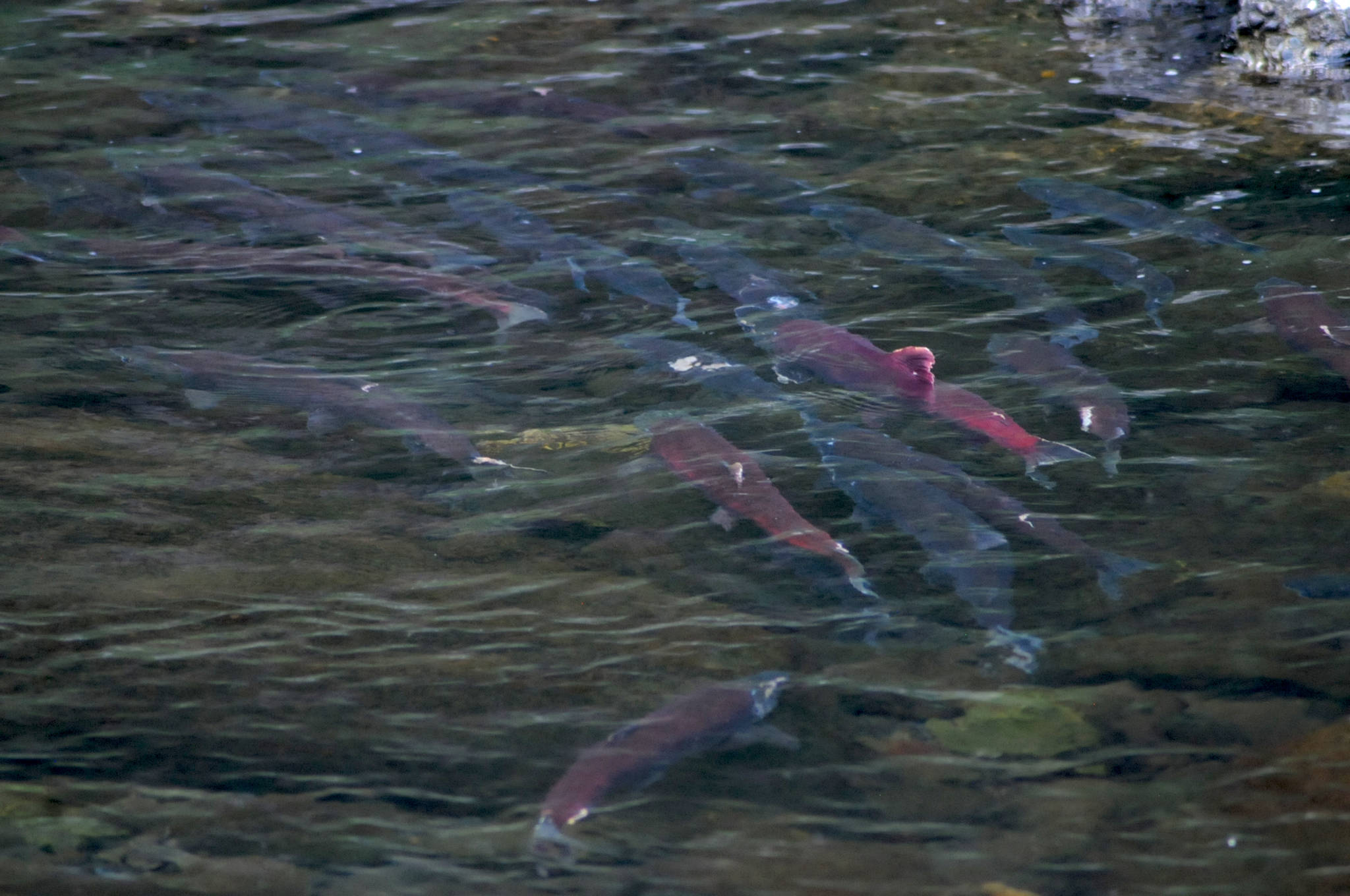With the Legislature closing in on the final day of its regular session, the battle over a bill to tighten restrictions on permits to develop near Alaska’s anadromous streams is still attracting a lot of attention.
On Saturday, dozens of Alaskans phoned in and attended a House Fisheries Committee meeting to weigh in on an amended version of House Bill 199, which would increase restrictions for obtaining a permit to develop in streams deemed to be salmon habitat. Public opinion was divided, though the majority testified in support, citing concerns about the future of Alaska’s salmon runs. Opponents said the current permitting system works and the additional restrictions would hamper industry too much.
The current version of HB 199, originally sponsored by Rep. Louise Stutes (R-Kodiak), would institute a two-tiered permitting system for development impacting anadromous streams, including “major” and “minor” activities, based on the amount of damage the Alaska Department of Fish and Game’s Habiat Division determines would occur in the stream. It adds a public notice and comment procedure as well as legislative intent language about the protection of salmon resources, among other changes.
The bill is the result of more than two years of lobbying by fishermen, environmentalists and others, legislative discussion, amendments, committee hearings and letters from various agencies and boards. Stutes wrote in her sponsor’s statement that the bill, nicknamed “the Wild Salmon Legacy Act,” was drafted in response to a letter the Board of Fisheries sent to the Legislature in January 2017 in response to a petition from stakeholders discussed in October 2016.
“HB 199 provides regulatory certainty for resource development companies while ensuring protection of salmon habitat,” she wrote.
A number of the original provisions have been removed after multiple committee hearings and reams of public comments since the bill was originally introduced in January 2017. The current bill removes a provision that would have established all waters of Alaska as anadromous until proven otherwise, known as “presumption of anadromy,” which opponents said would cripple development in Alaska.
Advocates have said the bill is necessary because of a number of proposed development projects threatening salmon streams — chiefly the proposed Pebble Mine in the Bristol Bay region and the Donlin Gold Mine near Crooked Creek, a Kuskokwim River community upstream of Bethel in western Alaska. Both projects have been lightning rods of controversy between fishermen and those in favor of resource development.
At the hearing Saturday, people from communities across Alaska called in to support HB 199. Most of those who testified said they were fishermen and wanted to see habitat regulations protected to ensure healthy salmon runs in the future.
“I think that what remains in the existing version of the bill is a vast improvement to what we have under our current law, but I do have to admit that I was disappointed to see the presumption of anadromy go away,” said Melanie Brown, a commercial fisherman in Naknek during the summers, in her testimony to the committee.
Anchorage resident and former Alaska Senate President Rick Halford, whom the committee invited to give testimony Saturday, said he would have preferred to see stronger language but was willing to accept the weaker language if that was what would pass the Legislature.
“It is very necessary,” he said. “Going forward with this bill, I think is a great service to the state. If this is the best you can get, I would encourage you to move it on … and get something passed in this Legislature.”
Alaskan voters may also vote on the same issue in the upcoming statewide election in November. A group called Yes for Salmon gathered signatures for a ballot proposition that would implement stronger salmon habitat regulations, similar to the original version of HB 199, and received approval from the Alaska Division of Elections last month.
The state has challenged the legality of the ballot proposition in court in 2017. An Alaska Superior Court judge ruled against the state in October 2017. The state appealed the ruling to the Alaska Supreme Court, which is scheduled to hear the case on April 26.
Resource development groups have loudly objected to the ballot initiative, saying it is too sweeping and cuts out a chance for industry to weigh in. Opponents to the bill testified as well on Saturday, saying the bill is unnecessary and will limit economic development in Alaska.
“According to (Stutes’) sponsor statement, the bill is known as the ‘Wild Salmon Legacy Act,’” said Gail Phillips of Anchorage in her testimony to the committee opposing the bill. “In truth, it should be known as the ‘Shut Down Alaksa’s Development Act.’”
Usibelli Coal Mine Vice President of External Affairs Lorali Simon wrote in a Jan. 26 letter to the Legislature opposing the bill that its regulations were similar to former president Barack Obama’s regulations on U.S. waters known as the “Waters of the United States,” which expanded the jurisdiction of the U.S. Environmental Protection Agency under the Clean Water Act to all navigable waters. The rule resulted in litigation and delay of the rule until 2020.
“Alaska’s permitting system already sets high standards for the protection of public health and the environment, including fish habitat,” she wrote. “By definition, a permitting process is intended to permit an activity. The opposite of permitting an activity would be denial of an activity. Alaska does not have a denial system — it has a permitting system. However, HB 199 creates a denial system.”
The bill is still in the House Fisheries committee, scheduled for another public hearing with testimony at 6:30 p.m. Monday. The Legislature’s final scheduled day in the regular session falls on Sunday, April 15.
Reach Elizabeth Earl at eearl@peninsulaclarion.com.

